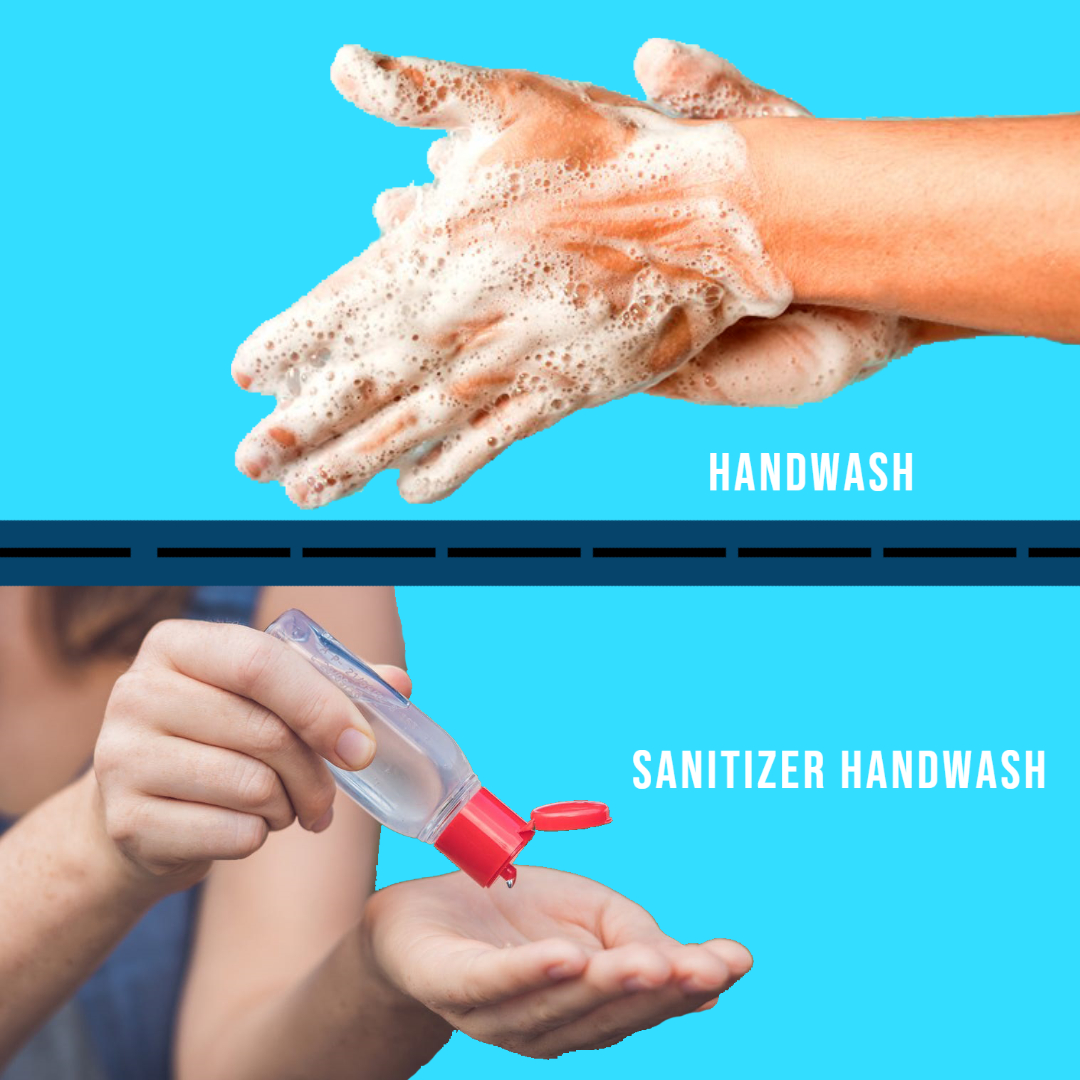COVID 19: Is hand sanitizer an alternative to hand washing?
The spread of Novel Coronavirus has again put the focus on cleaning the hands. Though the virus cannot penetrate the skin, it survives on the skin surface from hours to a few days. How to clean the virus from hands? This is a million-dollar question for public health professionals throughout the globe.

- Country:
- India
As the Novel Coronavirus (COVID 19) spreads through contact with the infected persons, the only available way out is to clean the hands frequently. Here comes the question – how to clean the hands?
Not only the people on social media but experts are also divided on whether hand sanitizers could replace hand-washing? This has generated a market space for pharmaceutical companies and retailers. The reports also suggest that the increasing demands of the sanitizers due to spread and scare of COVID 19 infection are leading to skyrocketing prices of sanitizers. Besides, dishonest producers and retailers are also fleecing people. The mad rush to procure branded hand sanitizers is acting as a financial trap for the people.
What Experts Say?
The World Health Organization (WHO) has clearly advised to clean the hands. “Regularly and thoroughly clean your hands with an alcohol-based hand rub or wash them with soap and water. Why? Washing your hands with soap and water or using alcohol-based hand rub kills viruses that may be on your hands,” said the WHO in Q and A on COVID 19. Thus, the WHO advisory draws a parallel between handwashing and rub hand sanitizer.
However, the Centre for Disease Control and Prevention (CDC) of the USA clearly recommends to prefer hand washing. “If soap and water are not available, use an alcohol-based hand sanitizer that contains at least 60 per cent alcohol,” said CDC in a recent research report on prevention of COVID 19. It further explains, “Many studies have found that sanitizers with an alcohol concentration between 60–95 per cent are more effective at killing germs than those with a lower alcohol concentration or non-alcohol-based hand sanitizers,”. According to CDC, the hand sanitizers having less amount of alcohol are either infective on many kinds of germs or merely reduce the growth of germs rather than kill them outright.
If applied properly, the alcohol-based hand sanitizers kill various bacteria, including antibiotic-resistant bacteria and TB bacteria as well. However, 90 per cent alcohol rubs are highly inflammable but kill many viruses, including enveloped viruses such as the flu virus, the common cold virus, coronaviruses, and HIV. The hand rub sanitizers are ineffective against the rabies virus. Alcohol-based hand sanitizers can kill 99.99 per cent or more of all non-spore forming bacteria in less than 30 seconds, both in the laboratory and on human skin.
Some Practical Problems
Hand sanitizes are good to sanitize visibly clean hands. It works effectively if the hands are not dirty, greasy and oily. Hand sanitizers may not be as effective when hands are visibly dirty or greasy. Hand sanitizers may also not remove harmful chemicals from hands like pesticides and heavy metals etc.
Besides, nothing can be said on the effectiveness of any particular brand of sanitizer. Furthermore, the concentration of alcohol and the proper application of the sanitizer also matters. If the sanitizer is not applied on a small part of the hand where the virus is actually present, the virus will continue to survive and may cause infection. While in the case of hand wash, the chances of the virus being left are minimum as water and soap easily spread on entire skin.
International bodies are also concerned with reigning profit-oriented companies. The United State Food & Drug Administration (FDA) and the Federal Trade Commission (FTC) have issued warning letters to seven companies for selling fraudulent COVID-19 products. They were found selling products with claims to cure or protect from COVID 19. Commenting on profiteering of some companies, Stephen M. Hahn, M.D. Commissioner of the FDA said, “FDA considers the sale and promotion of fraudulent COVID-19 products to be a threat to the public health. We have an aggressive surveillance program that routinely monitors online sources for health fraud products, especially during a significant public health issue such as this one (COVID 19),”.
The Way Ahead
We can take out a leaf from the advisory of the CDS - If soap and water are not available, use an alcohol-based hand sanitizer that contains at least 60 per cent alcohol. Besides killing the COVID 19, the handwashing also cleans several other kinds of germs.
As the water is not available everywhere, sanitizer could be used as an alternative. But, alcohol-based sanitizer is not the complete replacement of the handwashing.
Handwashing is in practice since long due to its role in cleaning of hands, removing dirt and microorganisms. Handwashing with soap is able to protect humans from a number of other diseases such as diarrhoea and cholera, which are transmitted through faecal-oral route in addition to respiratory diseases such as influenza or the common cold. The doctors recommend washing of hands for so many occasions but six are highly important occasions to wash your hands – before and after defecation, after cleaning a child’s bottom or changing nappies, before eating and after eating, before and after preparing food, handling raw food material (pulses, grain, fruits, meat, milk, eggs, and fish) and touching garbage.
(Disclaimer: The opinions expressed are the personal views of the author. The facts and opinions appearing in the article do not reflect the views of Devdiscourse and Devdiscourse does not claim any responsibility for the same.)
- FIRST PUBLISHED IN:
- Devdiscourse
ALSO READ
Italy Declares Gold Reserves 'People's Treasure'
Lima's Grinch on Wheels: Spreading Joy in Troubled Times
World Bank urges people-centered strategy to secure Viet Nam’s Mekong Delta future
Naidu's Governance Strategy: People's Satisfaction Above Metrics
Scindia Reviews Matabari Tourism Circuit, Calls for Heritage-Led, People-Centric Model










